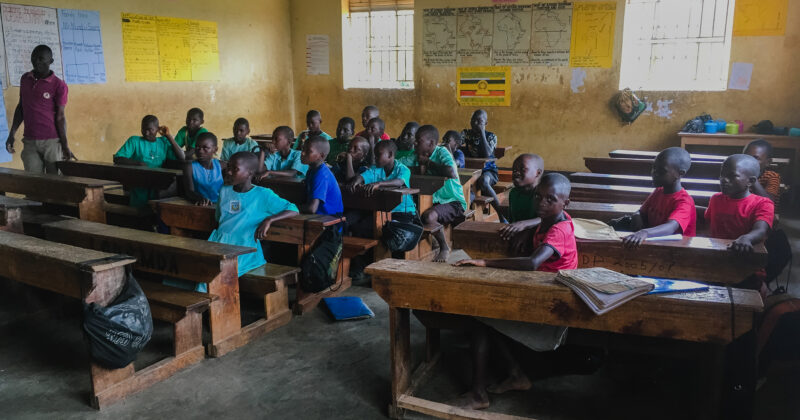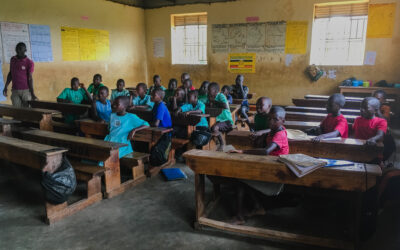
- raised €20,00
- Goal €2.000,00
- Day left ENDED
Campaign description
Our partnership in Uganda is based in the community of Masaka, a city in the Central Region, located 125 kilometres southwest of Kampala, the country’s capital. The district is made up of 9 sub-Districts which in turn are subdivided into 49 Political Districts and more than 100 Rural Towns.
It’s called SCOU, and we define them as a local association that fights to empower its entire rural community. One of the main projects they have carried out, thanks to their tenacity and some entities’ support, is the Sserinya primary school.
Sserinya is a constantly growing school that Yiga Joseph, together with his brother Simon and other colleagues, created more than five years ago. They are inclusive and highly aware of the priorities of their community needs: water, education and work. They involve all the inhabitants who, with the help of several volunteers, manage to carry out the schooling and training of children and some young people in the area.
We were hoping you could help us get financial support so that they can meet the challenge of finishing a building for the last year’s students (Primary 7) and keep education growing in Masaka. Your contribution means education directly to them and 100%.
Education in Uganda
The Ugandan education system is structured into seven years of primary education, 6 of secondary education (divided into 4 and 2) and 3 to 5 years of adult training. The Ugandan government recognizes education as a fundamental human right and strives to provide free primary education to all children in the country; however, problems with funding, teacher training, rural populations and inadequate facilities hamper the progress of educational development in Uganda.
There has been a tendency for more than 20 years by the Ugandan government to take over and “cover” the schooling and education of the primary age (between 6 and 12 years). But it does not happen in its entirety, especially in peripheral and rural areas, where even at these ages, education is null and almost unreachable for them.
This became evident during the November National Forum on Education, held at Makerere University, Uganda, where it was clearly stated that reaching complete schooling for the early ages by the year 2000 (a future at the time) was unattainable, even more so if we talk about women/girls for whom everything is more complicated.
They appealed for restructuring the educational law for 2014-2015, which was consolidated in 2017, being insufficient for housing all the needs and infrastructures, especially for secondary education.
The Ugandan education system is structured into seven years of primary education, 6 of secondary education (divided into 4 and 2) and 3 to 5 years of adult training. The Ugandan government recognizes education as a fundamental human right and strives to provide free primary education to all children in the country; however, problems with funding, teacher training, rural populations and inadequate facilities hamper the progress of educational development in Uganda.

